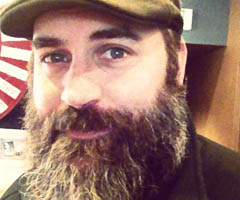Viewpoints is a SpokaneFāVS feature where our writers respond to a weekly question. Readers are invited to participate by posting in the comment section below.
Brussels came under attack on March 22, when three coordinated bombings killed more than 30 people and injured more than 300. ISIL is claiming responsibility.
On today’s Viewpoints we ask, How should we respond to the Brussels attacks?
Andrew Wheeler: Attacks on humanity

The way that we frame indiscriminate attacks on nominally Western people-groups in the Global North is often destructive. The San Bernardino and Brussels attacks garner mass media attention not only because people who ‘look like us’ were targeted (white, cisgendered male talking, here), but also because it confirmed stereotypes and legitimized fears regarding what has become, by intention and by accident, ‘outsider’ groups like Muslims, Sikhs and more. Some politicians, arms manufacturers and religious leaders find merit in emphasizing worldview differences and a clash of civilizations mentality, be that because they distract from problems at home, push more product or confirm a paradigm, but I put forward that there isn’t that much that distinguishes us from one another. We’re all people struggling (making jihad) to provide for our families, loved ones and friends, and we all want a brighter future and a comfortable hereafter.
We can take tragic events like that which transpired in Paris four months back and use them to create division in our own society, or we can use them to unite our rich, diverse communities against common enemies: bigotry, hatred and destruction. Attacks on civilians by ISIL operatives are not only attacks on the West, but attacks on humanity. What’s more, a larger number of non-militant Muslims are killed every day by bigoted, nominally Muslim actors than Americans, than Europeans. Now, by no means am I about to argue that suffering is some sort of zero-sum game, wherein the extension of empathy toward one negates another’s ability to be commiserated with, but I would love for attacks in Syria, Turkey, Iraq, Libya to find a place in Western media and for similar outrage to occur when they transpire. I suggest that, moving forward, we take moments of fear and sadness like these to reflect on how families and individuals are feeling daily in other parts of the world, regardless of religion, race or ethnicity, using them not as a confirmation of difference, but as an impetus for unity.
Tom Schmidt: We must look to ourselves

My response to the Brussels attacks is that any killing of life is problematical, that killing of human or human-like life is very problematical, and murder or torture used as a terroristic or counter-terrristic tatic is horrible.
The values behind both the Bible and the Quran lead us to the principle that the killing of another person is the killing of God. We are made in the image of God. Therefore, we must look to ourselves: Where have we participated in the killing of others, an act that leads others to retaliate with further killing? For me, any consideration og these acts of terrorism that does not also call for self reflection and repentence rings false.
Eric Blauer: Terrorism makes me feel these things

Terrorist attacks make me:
-Numb.
-Feel powerless.
-Tired of the mental gymnastics of who I’m allowed to blame, direct my anger or hate.
-Lean more Warhawk in politics.
-Sow mistrust in me of those I don’t understand.
-mistrust the syrupy progressive narrative.
-Lose faith in the idealism of peace.
-Fear for my kids and grandkids future.
-Mistrust middle ground, gridlocked, politicians.
-Unable to generate the compassion I used to feel.
-Tired of reading the news.
-Changes how I look at other religions, specifically Islam.
-Has shortened my prayers.
-Dampened my desire to travel.
-Heightened my daily awareness, made me anxious and more suspect of strangers.
-Realize that every generation can have Nazis.
Kelly Mathews: Care for each other

We should consider in advance and plan how we’ll react if this happens to us in our community.
We need to remember to care for each other. If an attack happens close to home, goodwill in our community and loving nurturing relationships with each other are what will keep us together and strong so we may rebuild and comfort each other and heal each other.
We must also seek each other out now as neighbors. That’s why I seek out getting to know my neighbors through organizations such as SpokaneFāVS as well as the Spokane Interfaith Council and my own local Unitarian Universalist Church, which has a great program hosting and welcoming other faiths and learning about them so that we can learn where we share common ground. This common ground that we all share as humans is imperative to find so that we can walk together in peace and build strong, healthy communities. That’s why it’s so important that we reach out to each other and get to know each other in the first place. This way we’re not strangers to each other.
People have alienated one another and this leads to fear and hate and unjust actions, which corrupt our chances for building a peaceful healthy community. In the world we must not despair. If terrorism was going to end civilization it would have already happened. That’s what the terrorists want you to think. Do not be part of their self-serving apocalypse. Remember that our whole world exist in systems of trust —complicated ecosystems of trust — as do our local communities. The more we all build up trust with each other the stronger our community is, and more terrorist proof. We cannot afford to be xenophobic.
We must be resilient and resolved to stand strong together. In order to stand strong together we need to reach out as Christians, Muslims, Jews, Buddhists, all faiths and those of us whose faith is in humanity and science, we must work together. Whatever weapons of terror or destruction the terrorists use, whatever their discourse whatever their threats, we must remember that technology and language go hand-in-hand. They may adopt new technology and language for their purposes, but so in turn shall we. We must decide what kind of language and technology we want to develop to prevent such horrors. We also need to remember that we are not isolated from the world wherever we are. We must remember that we’re all part of the global community together. What happens to one happens to us all.
So it is time for us to use the tools that are inside of us and in our DNA that have been wired into us to help us. And many of our faiths have tried to help us mend a healing path to the sacred way inside of each one of us to connect to each other on a secret plane of existence that is real and love and in the here and now. Recent neuroscience research shows that love empirically exists now. We humans love in order to bring us close connections and live well. We ignore this need for connection and to be loving at our own peril as a species. Practically speaking, many experts have said the reason suicide bombers are becoming more and more prevalent is because they are losing more and more territory at home. This means they seek targets abroad. They consistently seek to take away and bring about destruction all over the world. So we cannot just ask ourselves what should we do about Brussels?
We have to also be asking ourselves what are we going to be doing to prevent this locally what are we going to be doing to prevent this all over the world. Let us be one in our grief and one in our resolve show those who would terrorize us that we will live our lives and that we will love and they cannot stop us. They win as well if we make laws which take away our own freedoms. This makes everything we stand for a sad irony and we are no longer free if we give up what we love. So I urge all of us to seek out our neighbors and to make new friends and to work hard to get to know one another and build community. I urge all to be resolved to stand for freedom. I urge all to be resolved to love and live and that is how we will win this fight.






